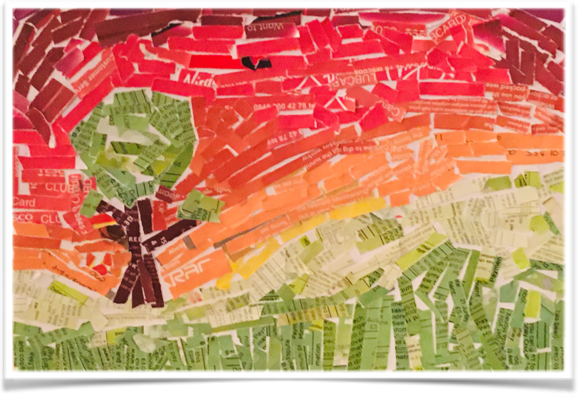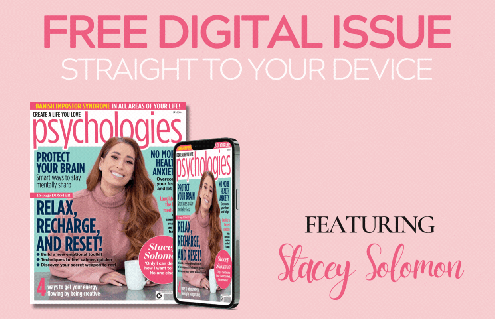Keep it Happy – Be you… beautifully…
The human perception of “beautiful” isn’t just something that looks good to the eye, it’s how it makes us feel inside. It doesn’t just trigger feelings of general appreciation, it goes far, far deeper. Written by Deborah Stephenson, soon-to-be Ollie Coach.

“Beauty begins the moment you decide to be yourself.” – Coco Chanel
Hello beautiful… yes, I’m talking to you! Really…
It’s my daughter’s idea. “Lots of girls at school are obsessed with how they look,” she said.
“They worry about it all the time and it’s a shame,” she mused, “because the start of beautiful is “Be-You”, and that should be what’s important.”
I don’t know if she had heard this or made it up, but it’s true that although the debate about appearance and beauty and young people has been discussed and argued and written about for years, little seems to have changed. “You should write about it.” she said.
So I began, and was dismayed to find a recent parliamentary survey that reported that in the last year, seven out of ten adults felt anxious or shameful about their appearance, and only three in ten of us felt proud of the way we look. Those surveyed were men and women, of all ages, from all backgrounds, ethnicity and sexual orientation… this isn’t just about young girls at school and social media apps, it’s clearly about all of us.
Why do we associate beauty so strongly with appearance? Why we are so rarely satisfied with how we look? And why do we feel we have to alter ourselves to be beautiful?
TV, films, magazines, the general media and social media are most often blamed for using enhanced and airbrushed images of “perfect” people. I watched a candid talk given by a model about the industry… “These are not pictures of me…” she said as she flicked through photos of herself on international cat walks and the front page of glossy magazines, “… they are constructions put together by professionals.”
But we already know these kind of images aren’t reality, so are they really the most powerful influence?
Take a moment… who do you consider beautiful?
Did you automatically think about looks? Maybe or maybe not.
A different question… How do you feel when you experience something beautiful?
It’s complex isn’t it? Beautiful doesn’t just trigger feelings of general appreciation, it goes far deeper. It can feel poignant, memorable or moving. It can be pleasurable and make us feel uplifted and warm, but also sad or even painful. It’s physical.
Where do you feel it? For me, it’s somewhere in the top of my stomach or the middle of my chest. It’s elation or compassion, tight or tingly, and it can sometimes trigger instant tears of pity or joy. The human perception of “beautiful” isn’t just something that looks good to the eye, it’s how it makes us feel inside. This, I think, is at the heart of what’s missing with retouched media images and why we’ll never find it for ourselves by trying to emulate the constructions of the professionals.
When we stand in front of a mirror and think “I wish I looked nicer”, or “I don’t feel beautiful”, What are we really saying? Do we actually mean something else? It’s different for everyone… but it generally seems to stem from a perception of “I am not enough,” and a need for validation. But do we really think “If my thighs were slimmer I’d be happier”, “If I lose weight, I’d be more beautiful”, “If I wear more makeup people will like me more” ?
I once had a friend who commented that I had a “perfect nose” which was nice of her, but I doubt that made me a better friend or was why she was friends with me in the first place! More seriously, I return to the model, who admitted that her slim waist, shiny hair, and life “looking beautiful” had brought insecurity not happiness.
Retouched selfies on social media may bring validation in “likes” but there is no single definition of the “look of beautiful”, so when we try to create it, it is guesswork and it’s a risky strategy where the worry and pain of rejection is a high price to pay.
There are many complex issues about why we want to change things about our appearance, countless studies about how we perceive beauty and what “beautiful” actually is, and thousands of airbrushed examples of people trying to emulate it… but surely if we just bust the myth that there is no such thing as perfect beauty we could move on more positively. When even the model in the picture says “This is not me. This is not reality,” then chasing that kind of beauty is an impossible and damaging exercise. We know it leads to all kinds of difficult and devastating problems for the individual, and it’s not good for society either.
Beautiful is a complex mix of emotions not just a thing and we already have it in us. It’s true that when we feel good in our body it feels good in our mind. So yes, take pride in your appearance, and change how you look for health reasons or for fun, but not to be beautiful … you are that already. Every young face is beautiful with youth, and learning and the promise of the future, just as wrinkles are beautiful reflections of tears, laughter and experience of the past. We have our own natural beauty because we are unique … and we should nurture a culture that validates this.
When you look at a person laughing joyfully do you think, “What terrible hair they have!” no… you probably don’t even notice their hair and you may even smile yourself. When you see someone overcoming an amazing challenge do you think “They should really lose weight!”? Unlikely… you will probably feel empathy and strength. You see the beauty below the surface, so we should trust that others will do the same for us.
Maybe I’m over simplifying, but in writing this I notice strong feelings about this “Be You” bit of beautiful. The word “beautiful” seems to have been hijacked and I see that we have some way to go in freeing it and I find that my daughter is right… we should absolutely recognise it, discuss it, write about it and change it.
So I thank her for her beautiful suggestion and I hope that she, and her friends, and future generations of children might be able grow up without this obsession with impossible surface appearance and can feel beautiful being themselves in the body they have.
And there’s something else too…
Give compliments… not just about appearance or looks but about character, actions, achievements and effort.
Compliments are good for us… they chip away negativity and encourage and strengthen self esteem and confidence. Compliments activate the reward part of the brain triggering the same neurotransmitter activity and happy hormone release as winning something or receiving a prize… and they are a prize, so be gracious in receiving them. I know we sometimes feel awkward, but sincere compliments are amazing communications of appreciation. Pushing them away is like returning a thoughtful gift (and of course, the more you push away the fewer you may get!).
The impact of a sincere or unexpected compliment can stay with us for years. I hope you’ve experienced that for yourself and science also shows that complimenting someone benefits the giver too. Seek opportunities to give honest compliments … and receive them well – it’s good for us all.
Oh and don’t forget to compliment yourself. Squash your negative inner chatter, stand in front of that mirror and celebrate being the unique and beautiful you that you are.
Deborah Stephenson, soon-to-be Ollie Coach
I am an Ollie School trainee and a Director at an Independent Prep School for boys. I am a trained journalist and worked in BBC Local Radio for more than twenty years as a reporter, bulletin reader, news editor and programme maker. It was a great job, but I wanted to do something to support my own children’s wellbeing with a view to taking that on to support others and, in pursuit of a better work life balance, I resigned as the Assistant Editor of BBC Essex last year. Inspired by the Ollie School concept I was excited to be accepted for the training course and it has been a fascinating and enlightening and journey so far.
To get in contact with Deborah, email info@ollieandhissuperpowers.com
To find out more about Ollie and his Super Powers and how to become an Ollie Coach go to https://www.ollieandhissuperpowers.com/pages/about-us
Caroline Chipper
Director
Co founder of Subconquest Ltd, that trades as Ollie and his Super Powers. My many years of commercial experience is being put to good use managing the business side of Ollie, including working with our Ollie Coaches, and managing our contracts. In everything we do its about making a difference to those we work with. To find out more go to https://www.ollieandhissuperpowers.com/pages/about-us


